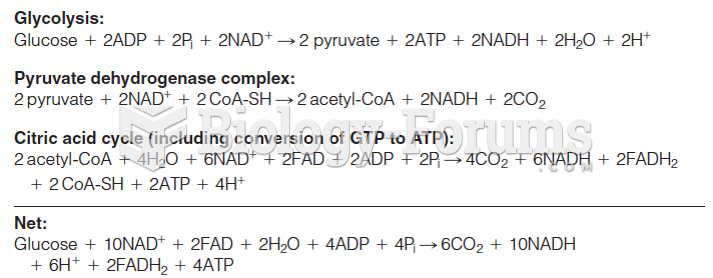|
|
|
Medication errors are more common among seriously ill patients than with those with minor conditions.
Earwax has antimicrobial properties that reduce the viability of bacteria and fungus in the human ear.
Chronic marijuana use can damage the white blood cells and reduce the immune system's ability to respond to disease by as much as 40%. Without a strong immune system, the body is vulnerable to all kinds of degenerative and infectious diseases.
Pubic lice (crabs) are usually spread through sexual contact. You cannot catch them by using a public toilet.
The National Institutes of Health have supported research into acupuncture. This has shown that acupuncture significantly reduced pain associated with osteoarthritis of the knee, when used as a complement to conventional therapies.







